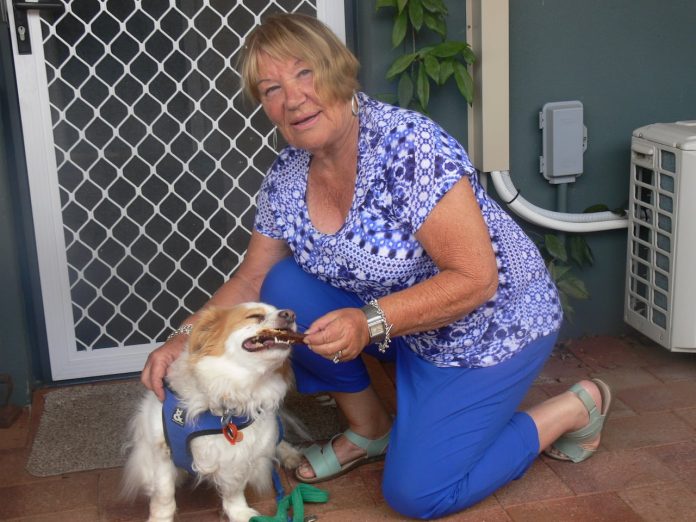POOPS (Pets for Older People) is all about keeping pets with their people. Pets provide older singles in particular with companionship, a purpose in life and even a reason to get up in the morning.
“Mostly our services are sought for dogs, but we do care for some cats also, taking them to the vets or changing cat litter, giving medication, things like that.”
Priscilla Lynch
Dogs may also act as personal trainers encouraging their owners to get out and walk in the open air. Moreover, walking with a dog is a great way to meet other dog owners if you feel socially isolated.
However, as we age, poorer health and decreasing mobility limits our ability to care for a pet. Who will feed and exercise a pet if we spend time in hospital or visit our children for a few days?
Enter POOPS. This not-for-profit WA organisation believes that no-one should be denied the companionship of a pet because of age, disability or poor health. They also believe that all pets deserve the best lives possible.
POOPS media liaison person, Priscilla Lynch says POOPs offers assistance for all pets.
“Mostly our services are sought for dogs, but we do care for some cats also, taking them to the vets or changing cat litter, giving medication, things like that.”
Over the last decade POOPS volunteers have helped hundreds of clients to walk their dogs, get their pets to the vet for health-care, transport the pet to a boarding facility if the owner goes into hospital, and occasionally feeding and walking pets from the owner’s home for short absences.
One volunteer is Elizabeth Campbell (79) of Kalamunda.
“We have always had dogs but when we retired Ian (Elizabeth’s husband) said we would have no more dogs so we were free to travel.
“I heard of Poops through my daughter. I contacted them and met up with Beth Wright, one of their organisers.
“A few days later Beth called to say she had found me a dog to walk. Tosca a seven-year-old Jack Russel cross belongs to my neighbour Brenda who can’t walk,” she said.
Elizabeth takes Tosca for a walk every Tuesday.
“Tosca gets excited when he hears the sound of my car, but he has a mind of his own. He sometimes refuses to go any further.”
“What a wonderful idea. Tosca is good company for Brenda as well as me. I also have a chat with Brenda when I call to walk Tosca. I find it very rewarding.”
Elizabeth also sometimes fosters other people’s dogs for short periods.
“Not more than two or three days as we find you can’t go out leaving a strange dog in the house,” she said.
One concern of many elderly pet owners is what happens when they die. POOPS has assisted with rehoming in the past on a few occasions, but this has been just on an ad hoc basis.
“It is definitely something we’re looking to get into in the future, however it is not really something we’re set up to do at the moment. Usually we try to liaise with other organisations who are set up to handle these situations if they come up,” said Ms Lynch.
POOPS 600 volunteers help 350 clients and their pets. They service the Perth metropolitan area from Yanchep to Mandurah, Perth Hills, Armadale to Serpentine, and, more recently, Busselton, Boyup Brook and Preston.
Find out more by contacting them on admin@poopswa.org.au 1300 1100 92.



































